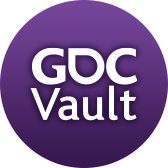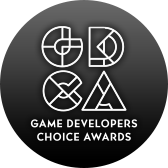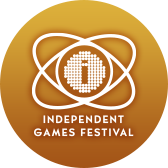At GDC 2018, attendees will have the opportunity to interact with an array of sponsors who help fuel the games industry, including our Diamond Partners, whose support plays an integral role to the success of GDC.
To introduce you to our Diamond Partner Unity, we've reached out to Unity Technologies' head of engineering Brett Bibby to ask about the future of the game engine business, and what attendees can expect during GDC!
Don't miss out! The Game Developers Conference in San Francisco next March will be a hub for many more great industry titans. For more visit the show’s official website.
Can you explain what we can expect from Unity during GDC?
At GDC we’ll be announcing a number of groundbreaking innovations and exciting improvements, as well as showcasing some great games that show what you can achieve with the Unity platform. We remain the leading platform for developing and delivering great products because we listen to our users closely and deliver a platform that enables their success, whether that be a single person working on a game in their bedroom or an international studio crafting their next AAA title. GDC is a great event to show how this feedback has propelled us, and the industry, forward.
How does Unity envision the future of the broader game engine business?
The games industry has always been a leader at the forefront of technology and we don’t expect this to change in the coming years. I believe there will be more direct parallels with games themselves and the engines that create them. As each year passes, games become increasingly central to culture, with more and more being recognized as pieces of art that can stand alongside the best entertainment and creative expressions the world has to offer.
A similar thing will happen with games engines. For years, they have been powering advanced real-time 3D environments, something that is set to become the de facto way we consume content in the coming
years. This means that the innovations that have been bubbling in the game industry will spread out into the greater world. We will see game engines powering everything, from films to industry to the way we browse the internet.
What are some of the biggest concerns you hear from your audience, and how do you plan on addressing those requests?
What we hear most often from out developers is the desire for us to support the broadest range of technology and platforms, yet in a scalable way that allows developers to get the highest performance out of every device. This is why we focus so much of our attention on ensuring Unity is one of the first platforms to support upcoming platforms and technologies like ARKit, ARCore, Nintendo Switch, iOS and Android, while at the same time ensuring that developers can squeeze the most out of the device no matter how constrained or unconstrained it might be in terms of capabilities. We believe that enabling our users to get their creations out on the platform of their choice is critical to their success.
It’s been more than a year since the launch of Unity Connect. What kind of impact
has this platform introduced to developers? How has the response from the community
been?
In just over the course of a year the Unity Connect community has grown to more than 140,000 creators from across the globe. We’ve helped connect thousands of programmers, artists, designers, and other creators to help them embark on their creative journeys. We’ve also enabled more than 400 members of our community to hire the right talent from Unity Connect to help take their projects to the finish line.
We’ve received a fantastic response from the community, especially with the Neon Challenge: a real- time environment contest that challenged our community to build a scene using art and objects from the Unity Asset Store. We’re excited to see the continued growth of Unity Connect as the leading community hub for all creative and development talent building interactive experiences with Unity. We have big plans for Unity Connect in the coming year.
What’s the path forward for Unity?
We are committed to making Unity the most optimized, powerful and beautiful real-time development platform available. The path then is to listen to our users and ensure their concerns and desires are made a reality through Unity. In addition we have a privileged view that few others have in terms of the depth and breadth of our partnerships and technology landscape, which yields insights and drives
innovation into our product and industry. Whether this is graphical performance, integrated AI, more flexibility over lighting and camera controls, or access to the newest platforms, Unity’s future is enabling success of the creators on our platform by empowering them to make the best products they can.
What can attendees who visit Unity’s booth at GDC expect to see?
This year Unity is doing things a bit differently. In addition to our presence at the show, we’ll also be opening up our office down the street from the Moscone Center to create a sort of “Unity Central” home base for not only our employees but attendees at the show as well. Stay tuned on that, as we’ll be announcing more information about the content and experiences we’ll be showcasing there very soon.
GDC 2018 will take place March 19-23rd at the Moscone Center in San Francisco. For more information, visit the show's official website, or subscribe to regular updates via Facebook, Twitter, or RSS.



